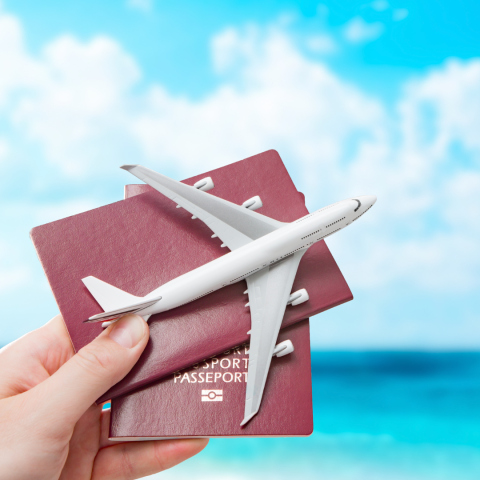Public Health Agency health advice for travellers

Whether planning a family vacation or backpacking across Asia there are several things to consider to help protect your health when abroad. The Public Health Agency (PHA) has put together a handy guide of health advice to help protect you and your family’s health when travelling.
Dr Patrick McAleavey, Consultant in Health Protection at the PHA, said: “When preparing for a holiday most people remember to pack the sunscreen, which is really important, but there are other things we need to consider to help protect our health on holiday.
“Knowing the health risks of the country you’re travelling to is a good place to start, but also think about the environment you’ll be in – from animal contact to insect bites and accommodation safety.”
To help protect you and your family’s health when travelling you should think about:
Rabies: avoid contact with animals and consider vaccination before travelling
Rabies is a very serious disease and is present in many parts of the world. It is transmitted through the saliva of infected animals, most commonly through a bite, scratch or lick to broken skin. It can affect domestic pets as well as wild animals.
- Children are particularly at risk as they are more likely to approach animals and may not report bites or scratches.
- Don’t touch or feed animals, even in temples, zoos or sanctuaries.
- Avoid attracting stray animals by dropping food or litter.
- Rabies-infected animals may behave strangely or seem unusually tame, but some may not have any signs that they are infected.
To find out about the rabies vaccine or what to do if you are bitten see www.nidirect.gov.uk/conditions/rabies
Protection against insect and tick bites
Insect and tick bites are relatively common in travellers, usually causing only minor irritation. However, they can transmit diseases.
To reduce the risk of being bitten:
- Use insect repellents on exposed skin (even if clothing has been treated): DEET-based repellents are the most effective.
- Stick to footpaths and avoid dense vegetation.
- Check the body for ticks after outdoor activities and remove any promptly.
- Wear long sleeves, long trousers and socks, tuck trousers into socks if walking in long grass.
- Choose light-coloured clothing to help spot ticks or insects.
Do you have your MMR vaccination?
Measles cases saw a dramatic rise last year, and outbreaks have been reported in many popular holiday destinations. It is highly infectious and can affect people of any age, not just kids. The best way to protect yourself and your loved ones is by getting the MMR (measles, mumps and rubella) vaccine.
- Ensure you’re fully vaccinated with two doses of the vaccine.
- Book in time so you have your vaccinations at least two weeks before travel.
For more information, visit www.nidirect.gov.uk/mmr
Practise good hygiene and water safety
Home or abroad, hand washing and good swimming habits prevents illness.
- Wash your hands before eating and drinking and after using the toilet.
- Don't swim if you have had diarrhoea within the past 48 hours.
- Shower before entering pools.
- Use swim nappies for young children and take regular bathroom breaks.
- Avoid swallowing water in pools or natural sources.
Carbon monoxide – pack a portable alarm
Carbon monoxide (CO) is a colourless, odourless gas that can leak from faulty appliances and may be fatal.
- Bring a portable CO alarm when staying in holiday rentals, caravans, tents or motorhomes with gas, oil or solid fuel appliances.
- Never use barbecues or fuel burning devices indoors or in enclosed spaces.
- Make sure rooms are well ventilated.
“By being aware and by taking a few sensible precautions, we can all reduce the risk of illness and enjoy our well-deserved holidays.” concluded Dr McAleavey
For further information on the health risks of the country you’re travelling to or to find out about the travel vaccinations that are recommended to protect against diseases not prevalent in the UK see www.travelhealthpro.org.uk or speak to your local travel clinic.
